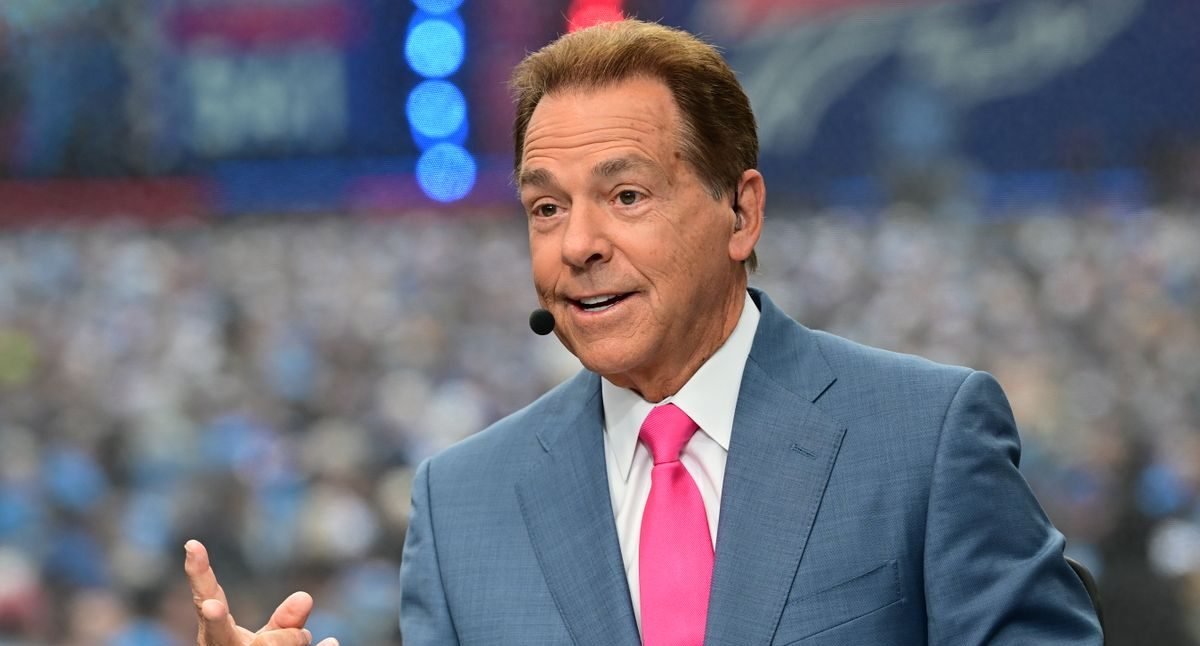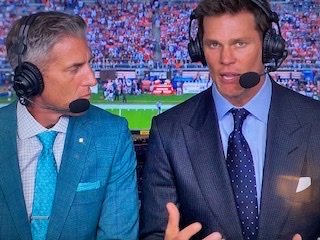Saban will do better on TV than Brady
/Talented students interested in TV sports journalism can get good jobs. But they aren’t ever going to become a football gameday analyst in a booth or a studio for a national network because those precious few jobs belong to former athletes or coaches.*
This football season, major networks added two really big names from those categories -- Nick Saban as an analyst on ESPN’s College GameDay and Tom Brady as No. 1 analyst for Fox Sports’ NFL broadcasts.
Based on a small sample size, I foresee that Saban will perform better in his role than Brady will in his.
Saban works hard to excel at whatever he does and I think that shows in his new role. In three GameDay appearances so far, he’s offered some pointed, welcomed commentary -- talking, for instance, about evidence that his players were solicited to transfer immediately after his retirement and noting that tons of NIL money doesn’t do any good if it’s spent on the wrong players. (The latter remarks included the s-word profanity, which is OK on ESPN but would have drawn a Federal Communications Commission fine on ABC.)
He's even been amusing, such as ribbing Florida State fans that he had nothing to do with his team getting picked over theirs for the playoffs last year. And the notoriously media-averse coach caused the head of every sports writer in Alabama to explode when he said of his new job: “Now I’m in this world. This is my gig, and it’s hard.”
I suspect ESPN is loving the dynamic it has created between the mostly serious Saban and the shtick of co-panelist Pat McAfee as a developmentally stunted frat bro.**
Brady, in his first broadcast Sunday, didn’t offer much game insight beyond what knowledgeable viewers could see for themselves. I expected more revealing analysis from the best quarterback of all time. He was excessively repetitive in his major points, too.
He had good moments when he discussed a quarterback’s view of man-to-man vs. zone coverage and the complexities of the Dallas defensive coordinator’s schemes. He had a lucky moment when he brought up the havoc caused by Dallas defender Micah Parsons, then Parsons immediately made a big play. Brady had multiple bad moments when he bypassed chances to talk about Cleveland quarterback Deshaun Watson’s inadequacies, suggesting that he’s going to protect the men who play his former position.
Brady, who I’m sure will get better, made some decent attempts at humor and personality. I thought “I can’t hit a sand wedge 71 yards” in reference to a possible 71-yard field goal attempt was pretty good.
Beyond individual moments, there’s a troubling issue with Brady. He has a conflict of interest between his broadcaster role and the NFL’s pending approval to make him a 10% owner of the Las Vegas Raiders. The NFL has restricted his freedom to criticize the officiating and banned him from team facilities and broadcast pre-production meetings with coaches and players. Fox Sports obviously doesn’t care, and Brady does have other avenues of access to the pre-game information that any good analyst needs. So he can overcome the restrictions. But the ownership angle still makes a viewer wonder if he’s going to feel more beholden to the league and its people than the typical announcer.
Saban has a conflict of interest, too, but of a different kind. He’s still a paid employee of the University of Alabama ($500,000 per year). With his status, Saban doesn’t need to worry whether anyone at UA might get angry or punitive, and unlike Brady, there aren’t restrictive rules. But one question going forward is how bluntly Saban will talk about Alabama and the SEC. How much, if at all, will loyalty or bias influence such commentary? So far, he’s picked Georgia, not Alabama, to win the SEC. He’s also said good things about Hugh Freeze at Auburn. Thankfully for the current job, bluntness is a Saban trademark, as is his desire to do every job right. But each viewer can decide for themselves what they think they’re hearing.
In the bigger picture, that’s always the problem when coaches and athletes become media commentators. What are viewers hearing? Hopefully it’s highly informed truth, not loyalty to a brethren. I don’t trust networks to make sure it’s the former. Certainly networks value the distinctive experiences and knowledge that former coaches and athletes bring, but I think the executives care more about the star power of big names. Over time, it’s up to Brady, Saban and other second-career TV sports analysts to prove themselves. Which sometimes happens, and sometimes never does.
* Rece Davis of ESPN College GameDay is a graduate of my UA department but I consider him more of a host than an analyst. And a few true journalists, such as Nicole Auerbach of NBC Sports, get on-air studio time in football reporter roles.
** GameDay ratings so far this season have been exceptionally good.


